2016-17 Series
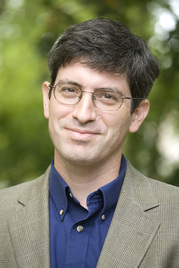
6 October 2016
Carl Zimmer, science journalist/writer
"Masters of Evolution"
North Lawn Auditorium
7:30 PM
Carl Zimmer writes books, articles, essays, and blog posts in which he reports from the frontiers of biology, where scientists are expanding our understanding of life. Since 2013 he has been a columnist at the New York Times, where his column “Matter”appears each week. He is a popular speaker at universities, medical schools, museums, and festivals, and he is also a frequent on radio programs such as Radiolab and This American Life. In 2016, Zimmer won the Stephen Jay Gould Prize, awarded annually by the Society for the Study of Evolution to recognize individuals whose sustained efforts have advanced public understanding of evolutionary science.
Zimmer is the author of twelve books about science. In 2015, the University of Chicago Press published the second edition of his book, A Planet of Viruses, updated with sections on Ebola, MERS, and other viruses that have recently been in the news. Reviewing the book, the Washington Post declared, "Science writer Carl Zimmer accomplishes in a mere 100 pages what other authors struggle to do in 500: He reshapes our understanding of the hidden realities at the core of everyday existence."
Among his other books, Zimmer is the author of Soul Made Flesh, a history of neuroscience. It was named one of the top 100 books of the year by The New York Times Book Review, and dubbed a "tour-de-force" by The Sunday Telegraph. His book Evolution: The Triumph of an Idea was called "as fine a book as one will find on the subject" by Scientific American. Zimmer's other books include At the Water's Edge, a book about major transitions in the history of life; The Smithsonian Intimate Guide to Human Origins; and Parasite Rex, which the Los Angeles Times described as "a book capable of changing how we see the world." Microcosm: E. coli and the New Science of Life, was hailed by The Boston Globe as "superb...quietly revolutionary." It was a finalist for the Los Angeles Times Science Book Prize. Science Ink: Tattoos of the Science Obsessed has been featured in The Wall Street Journal, The New York Times, The Guardian, Der Spiegel, and the Huffington Post.
Zimmer is also the author of two widely praised textbooks. In 2009, he published The Tangled Bank: An Introduction to Evolution, the first textbook about evolution intended for non-majors. Edward O. Wilson of Harvard called it “excellent for students, the general public, and even other biologists.” Choice named it an academic title of the year. The second edition was published in 2013. Zimmer also co-authored Evolution: Making Sense of Life a textbook for biology majors, with University Montana biologist Doug Emlen. "Their text can only be described as an exciting moment for our field," said Neil Shubin of the University of Chicago. The second edition was published in 2015. (Source: http://carlzimmer.com/bio.html)
For more information about this talk, contact Bill Evans in Journalism and Creative Media.
Carl Zimmer, science journalist/writer
"Masters of Evolution"
North Lawn Auditorium
7:30 PM
Carl Zimmer writes books, articles, essays, and blog posts in which he reports from the frontiers of biology, where scientists are expanding our understanding of life. Since 2013 he has been a columnist at the New York Times, where his column “Matter”appears each week. He is a popular speaker at universities, medical schools, museums, and festivals, and he is also a frequent on radio programs such as Radiolab and This American Life. In 2016, Zimmer won the Stephen Jay Gould Prize, awarded annually by the Society for the Study of Evolution to recognize individuals whose sustained efforts have advanced public understanding of evolutionary science.
Zimmer is the author of twelve books about science. In 2015, the University of Chicago Press published the second edition of his book, A Planet of Viruses, updated with sections on Ebola, MERS, and other viruses that have recently been in the news. Reviewing the book, the Washington Post declared, "Science writer Carl Zimmer accomplishes in a mere 100 pages what other authors struggle to do in 500: He reshapes our understanding of the hidden realities at the core of everyday existence."
Among his other books, Zimmer is the author of Soul Made Flesh, a history of neuroscience. It was named one of the top 100 books of the year by The New York Times Book Review, and dubbed a "tour-de-force" by The Sunday Telegraph. His book Evolution: The Triumph of an Idea was called "as fine a book as one will find on the subject" by Scientific American. Zimmer's other books include At the Water's Edge, a book about major transitions in the history of life; The Smithsonian Intimate Guide to Human Origins; and Parasite Rex, which the Los Angeles Times described as "a book capable of changing how we see the world." Microcosm: E. coli and the New Science of Life, was hailed by The Boston Globe as "superb...quietly revolutionary." It was a finalist for the Los Angeles Times Science Book Prize. Science Ink: Tattoos of the Science Obsessed has been featured in The Wall Street Journal, The New York Times, The Guardian, Der Spiegel, and the Huffington Post.
Zimmer is also the author of two widely praised textbooks. In 2009, he published The Tangled Bank: An Introduction to Evolution, the first textbook about evolution intended for non-majors. Edward O. Wilson of Harvard called it “excellent for students, the general public, and even other biologists.” Choice named it an academic title of the year. The second edition was published in 2013. Zimmer also co-authored Evolution: Making Sense of Life a textbook for biology majors, with University Montana biologist Doug Emlen. "Their text can only be described as an exciting moment for our field," said Neil Shubin of the University of Chicago. The second edition was published in 2015. (Source: http://carlzimmer.com/bio.html)
For more information about this talk, contact Bill Evans in Journalism and Creative Media.
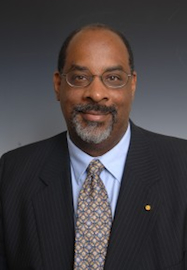
10 November 2016
Joseph Graves, Jr., North Carolina A&T State University and UNC Greensboro
"Great is Their Sin: Biological Determinism in the Age of Genomics"
North Lawn Auditorium
7:30 PM
Dr. Joseph Graves, Jr. received his Ph.D. in Environmental, Evolutionary and Systematic Biology from Wayne State University in 1988. In 1994 he was elected a Fellow of the Council of the American Association for the Advancement of Science (AAAS.) In April 2002, he received the ASU-West award for Scholarly Research and Creative Activity. His research concerns the evolutionary genetics of postponed aging and biological concepts of race in humans, with over seventy papers and book chapters published. He has appeared in six documentary films and numerous television interviews on these general topics. He has been a Principal Investigator on grants from the National Institutes of Health and National Science Foundation. His current research involves the genomics of adaptation, specifically relevant to aging, the impact of nanoparticles on bacteria, and the theory and methods of computational evolutionary phylogenetics and molecular evolution.
His books on the biology of race are entitled: The Emperor's New Clothes: Biological Theories of Race at the Millennium, Rutgers University Press, 2001, 2005 and The Race Myth: Why We Pretend Race Exists in America, Dutton Press, 2004, 2005. A summary of Dr. Graves’s research career can be found on Wikipedia, and he is also featured in the ABC-CLIO volume on Outstanding African American scientists. In November 2007, he was featured in the CNN Anderson Cooper 360 program on Dr. James Watson.
He has served as a member of the external advisory board for the National Human Genome Center at Howard University. In January 2006, he became a member of the “New Genetics and the African Slave Trade” working group of the W.E.B. Du Bois Institute of Harvard University, chaired by professors Henry Louis Gates and Evelyn Hammonds. He has served as the chair of the Senior Advisory Board for the National Evolutionary Synthesis Center (NESCent) at Duke University. He is currently a member of the executive boards of the NSF Science and Technology Center: Biocomputational Evolution in Action (BEACON); Integrative Bioinformatics for Investigating and Engineering Microbiomes (IBIEM); and NSF NNCI Southeast Nanoinnovation Corridor (SENIC).
He was the Associate Editor for the 2nd Edition for the Encyclopedia of Race and Racism, Gale-Cengage published in 2013. Since 2007, he has served on editorial board of Evolution: Education and Outreach, published by Springer-Verlag. He has been an active participant in the struggle to protect and improve the teaching of science, particularly evolutionary biology in the public schools. He has been a leader in addressing the under representation of minorities in science careers, having directed successful programs in California and Arizona. He is a leading force in aiding underserved youth in Greensboro via the YMCA chess program. He is currently a member of the Racial Justice and Reconciliation Council of the Episcopal Diocese of North Carolina.
For more information about this talk, contact Chris Lynn in Evolutionary Studies.
Joseph Graves, Jr., North Carolina A&T State University and UNC Greensboro
"Great is Their Sin: Biological Determinism in the Age of Genomics"
North Lawn Auditorium
7:30 PM
Dr. Joseph Graves, Jr. received his Ph.D. in Environmental, Evolutionary and Systematic Biology from Wayne State University in 1988. In 1994 he was elected a Fellow of the Council of the American Association for the Advancement of Science (AAAS.) In April 2002, he received the ASU-West award for Scholarly Research and Creative Activity. His research concerns the evolutionary genetics of postponed aging and biological concepts of race in humans, with over seventy papers and book chapters published. He has appeared in six documentary films and numerous television interviews on these general topics. He has been a Principal Investigator on grants from the National Institutes of Health and National Science Foundation. His current research involves the genomics of adaptation, specifically relevant to aging, the impact of nanoparticles on bacteria, and the theory and methods of computational evolutionary phylogenetics and molecular evolution.
His books on the biology of race are entitled: The Emperor's New Clothes: Biological Theories of Race at the Millennium, Rutgers University Press, 2001, 2005 and The Race Myth: Why We Pretend Race Exists in America, Dutton Press, 2004, 2005. A summary of Dr. Graves’s research career can be found on Wikipedia, and he is also featured in the ABC-CLIO volume on Outstanding African American scientists. In November 2007, he was featured in the CNN Anderson Cooper 360 program on Dr. James Watson.
He has served as a member of the external advisory board for the National Human Genome Center at Howard University. In January 2006, he became a member of the “New Genetics and the African Slave Trade” working group of the W.E.B. Du Bois Institute of Harvard University, chaired by professors Henry Louis Gates and Evelyn Hammonds. He has served as the chair of the Senior Advisory Board for the National Evolutionary Synthesis Center (NESCent) at Duke University. He is currently a member of the executive boards of the NSF Science and Technology Center: Biocomputational Evolution in Action (BEACON); Integrative Bioinformatics for Investigating and Engineering Microbiomes (IBIEM); and NSF NNCI Southeast Nanoinnovation Corridor (SENIC).
He was the Associate Editor for the 2nd Edition for the Encyclopedia of Race and Racism, Gale-Cengage published in 2013. Since 2007, he has served on editorial board of Evolution: Education and Outreach, published by Springer-Verlag. He has been an active participant in the struggle to protect and improve the teaching of science, particularly evolutionary biology in the public schools. He has been a leader in addressing the under representation of minorities in science careers, having directed successful programs in California and Arizona. He is a leading force in aiding underserved youth in Greensboro via the YMCA chess program. He is currently a member of the Racial Justice and Reconciliation Council of the Episcopal Diocese of North Carolina.
For more information about this talk, contact Chris Lynn in Evolutionary Studies.
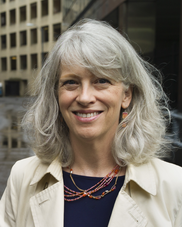
26 January 2017
Ann Reid, National Center for Science Education
"Science Class is for Science, Right? Think Again"
North Lawn Auditorium
7:30 PM
Ann Reid is executive director of the National Center for Science Education in Oakland CA. For more than 30 years, NCSE has defended the teaching of evolution in public schools. Five years ago, the organization added climate change to its mission.
As a research scientist at the Armed Forces Institute of Pathology from 1989 to 2004, Reid adapted molecular biology techniques for the study of preserved tissue samples. From 1997 to 2004, she used these techniques to obtain the full genetic sequence of the 1918 influenza virus—the virus responsible for the 1918-1919 pandemic that killed 20-40 million people worldwide--from fixed and frozen tissue samples. From 2005 to 2009, she served as a senior program officer at the National Research Council’s Board on Life Science. From 2010 to 2014, she served as director of the American Academy of Microbiology, where she originated a series of reports bringing advances in microbiology to the general public.
Since becoming the executive director of the National Center for Science Education in 2014, she has focused on developing new programs to help science teachers cover the societally controversial topics of evolution and climate change, both by providing direct support and training, and indirect support through the organization of community science booster clubs. NCSE also has an active survey program; most recently, NCSE carried out a national representative survey of middle and high school science teachers to learn whether and how they are covering climate change in their classrooms.
Reid earned a BA in Environmental Studies from Simon’s Rock Early College and a MA in European Studies from the Johns Hopkins School of Advanced International Studies.
For more information about this talk, contact Tom Tobin in Geological Sciences.
Ann Reid, National Center for Science Education
"Science Class is for Science, Right? Think Again"
North Lawn Auditorium
7:30 PM
Ann Reid is executive director of the National Center for Science Education in Oakland CA. For more than 30 years, NCSE has defended the teaching of evolution in public schools. Five years ago, the organization added climate change to its mission.
As a research scientist at the Armed Forces Institute of Pathology from 1989 to 2004, Reid adapted molecular biology techniques for the study of preserved tissue samples. From 1997 to 2004, she used these techniques to obtain the full genetic sequence of the 1918 influenza virus—the virus responsible for the 1918-1919 pandemic that killed 20-40 million people worldwide--from fixed and frozen tissue samples. From 2005 to 2009, she served as a senior program officer at the National Research Council’s Board on Life Science. From 2010 to 2014, she served as director of the American Academy of Microbiology, where she originated a series of reports bringing advances in microbiology to the general public.
Since becoming the executive director of the National Center for Science Education in 2014, she has focused on developing new programs to help science teachers cover the societally controversial topics of evolution and climate change, both by providing direct support and training, and indirect support through the organization of community science booster clubs. NCSE also has an active survey program; most recently, NCSE carried out a national representative survey of middle and high school science teachers to learn whether and how they are covering climate change in their classrooms.
Reid earned a BA in Environmental Studies from Simon’s Rock Early College and a MA in European Studies from the Johns Hopkins School of Advanced International Studies.
For more information about this talk, contact Tom Tobin in Geological Sciences.

23 February, 2017
Michael L. Anderson, Franklin and Marshall College
"Neural reuse in the evolution and development of the brain"
North Lawn Auditorium
7:30 PM
Michael L. Anderson is the author of over 100 scholarly and scientific works that explore issues at the intersection of psychology, neuroscience, computer science, and the philosophy of cognitive science. His latest book, After Phrenology: Neural Reuse and the Interactive Brain (MIT Press, 2014) outlines a novel framework for understanding the overall functional organization of the brain, places its function in evolutionary context, and demonstrates how mechanisms originally evolved for the support of sensory-motor coordination have been coopted to facilitate language and mathematics. The book has been called “hugely significant” and the “best thing written about the brain this century”.
Anderson was a 2012-13 Fellow at the Center for Advanced Study in the Behavioral Sciences, at Stanford University, and is currently Associate Professor and Chair of Psychology at Franklin & Marshall College, in Lancaster, PA. He earned a B.S. in premedical studies from the University of Notre Dame, a Ph.D. in Philosophy from Yale University, and did his post-doctoral training in Computer Science at the University of Maryland, College Park.
For more information about this talk, contact Firat Soylu in Educational Psychology.
Michael L. Anderson, Franklin and Marshall College
"Neural reuse in the evolution and development of the brain"
North Lawn Auditorium
7:30 PM
Michael L. Anderson is the author of over 100 scholarly and scientific works that explore issues at the intersection of psychology, neuroscience, computer science, and the philosophy of cognitive science. His latest book, After Phrenology: Neural Reuse and the Interactive Brain (MIT Press, 2014) outlines a novel framework for understanding the overall functional organization of the brain, places its function in evolutionary context, and demonstrates how mechanisms originally evolved for the support of sensory-motor coordination have been coopted to facilitate language and mathematics. The book has been called “hugely significant” and the “best thing written about the brain this century”.
Anderson was a 2012-13 Fellow at the Center for Advanced Study in the Behavioral Sciences, at Stanford University, and is currently Associate Professor and Chair of Psychology at Franklin & Marshall College, in Lancaster, PA. He earned a B.S. in premedical studies from the University of Notre Dame, a Ph.D. in Philosophy from Yale University, and did his post-doctoral training in Computer Science at the University of Maryland, College Park.
For more information about this talk, contact Firat Soylu in Educational Psychology.
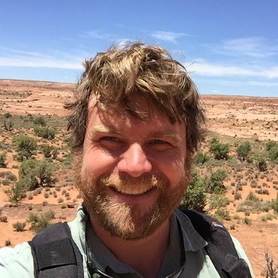
30 March 2017
Casey Dunn, Brown University
"More than filling in the holes: why poorly known taxa are critical to understanding animal evolution"
North Lawn Auditorium
7:30 PM
Casey Dunn got a BS in Biological Sciences at Stanford, where Paul Ehrlich was his advisor. He took time off before, during, and after his undergraduate studies to be a guide in the Amazon, sink a friend's boat off the coast of California, scoop ice cream in Alaska, work in the boreal forest, and improve his computational skills in Silicon Valley. He then studied Evolutionary Biology at Yale with Gunter Wagner, and did a postdoc in Evolutionary Developmental Biology in Hawaii with Mark Martindale. Since 2007, he has been on the faculty at Brown University.
For more information about this talk, contact Kevin Kocot in Biological Sciences.
Casey Dunn, Brown University
"More than filling in the holes: why poorly known taxa are critical to understanding animal evolution"
North Lawn Auditorium
7:30 PM
Casey Dunn got a BS in Biological Sciences at Stanford, where Paul Ehrlich was his advisor. He took time off before, during, and after his undergraduate studies to be a guide in the Amazon, sink a friend's boat off the coast of California, scoop ice cream in Alaska, work in the boreal forest, and improve his computational skills in Silicon Valley. He then studied Evolutionary Biology at Yale with Gunter Wagner, and did a postdoc in Evolutionary Developmental Biology in Hawaii with Mark Martindale. Since 2007, he has been on the faculty at Brown University.
For more information about this talk, contact Kevin Kocot in Biological Sciences.
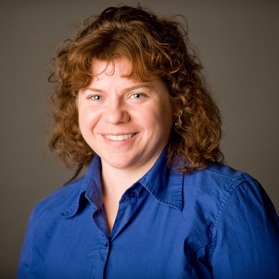
20 April 2017
Barbara Cohen, Marshall Space Flight Center
"Roving Mars: Pathfinder, Spirit, Opportunity, Curiosity"
CANCELED
Dr. Barbara Cohen leads the planetary science group at the Marshall Space Flight Center. Originally from upstate New York, Dr. Cohen earned her BS in Geology from the State University of New York at Stony Brook and her PhD in Planetary Science from the University of Arizona. She is now a planetary scientist at NASA’s Marshall Space Flight Center interested in geochronology and geochemistry of planetary samples from the Moon, Mars and asteroids.
Dr. Cohen serves within NASA representing science interests and capabilities within human spaceflight planning. She is a Principal Investigator on multiple NASA research projects, a member of the mission teams operating the Opportunity and Curiosity rovers on Mars, and the principal investigator for Lunar Flashlight, a lunar cubesat mission that will be launched in 2018. She is the PI for the MSFC Noble Gas Research Laboratory (MNGRL) and is developing a flight version of her noble-gas geochronology technique, the Potassium-Argon Laser Experiment (KArLE), for use on future planetary landers and rovers. She has participated in the Antarctic Search for Meteorites (ANSMET) over three seasons, where she helped recovered more than a thousand pristine samples for the US collection, and asteroid 6186 Barbcohen is named for her.
For more information about this talk, contact Roger Reid at the Alabama Museum of Natural History.
Barbara Cohen, Marshall Space Flight Center
"Roving Mars: Pathfinder, Spirit, Opportunity, Curiosity"
CANCELED
Dr. Barbara Cohen leads the planetary science group at the Marshall Space Flight Center. Originally from upstate New York, Dr. Cohen earned her BS in Geology from the State University of New York at Stony Brook and her PhD in Planetary Science from the University of Arizona. She is now a planetary scientist at NASA’s Marshall Space Flight Center interested in geochronology and geochemistry of planetary samples from the Moon, Mars and asteroids.
Dr. Cohen serves within NASA representing science interests and capabilities within human spaceflight planning. She is a Principal Investigator on multiple NASA research projects, a member of the mission teams operating the Opportunity and Curiosity rovers on Mars, and the principal investigator for Lunar Flashlight, a lunar cubesat mission that will be launched in 2018. She is the PI for the MSFC Noble Gas Research Laboratory (MNGRL) and is developing a flight version of her noble-gas geochronology technique, the Potassium-Argon Laser Experiment (KArLE), for use on future planetary landers and rovers. She has participated in the Antarctic Search for Meteorites (ANSMET) over three seasons, where she helped recovered more than a thousand pristine samples for the US collection, and asteroid 6186 Barbcohen is named for her.
For more information about this talk, contact Roger Reid at the Alabama Museum of Natural History.
